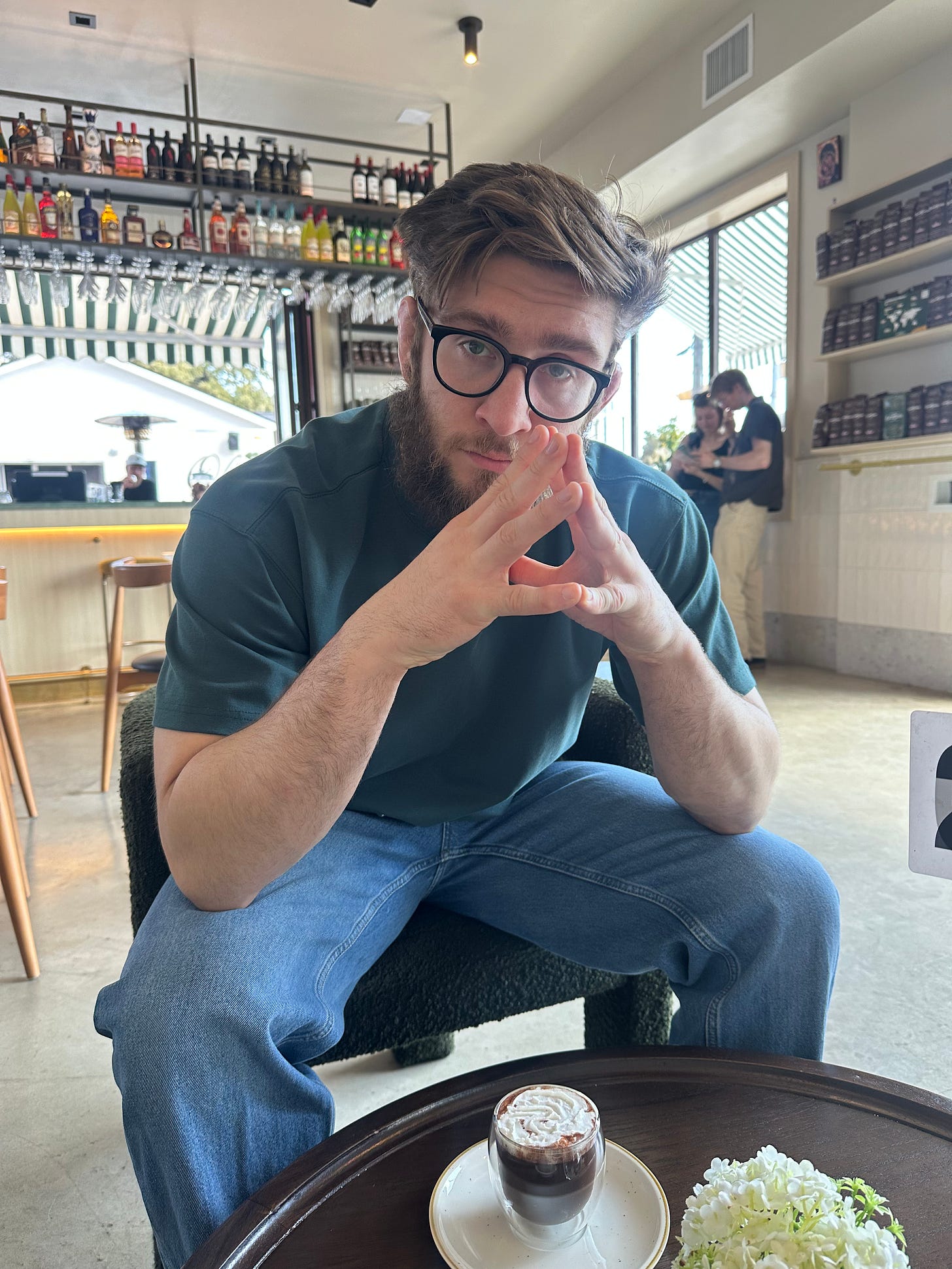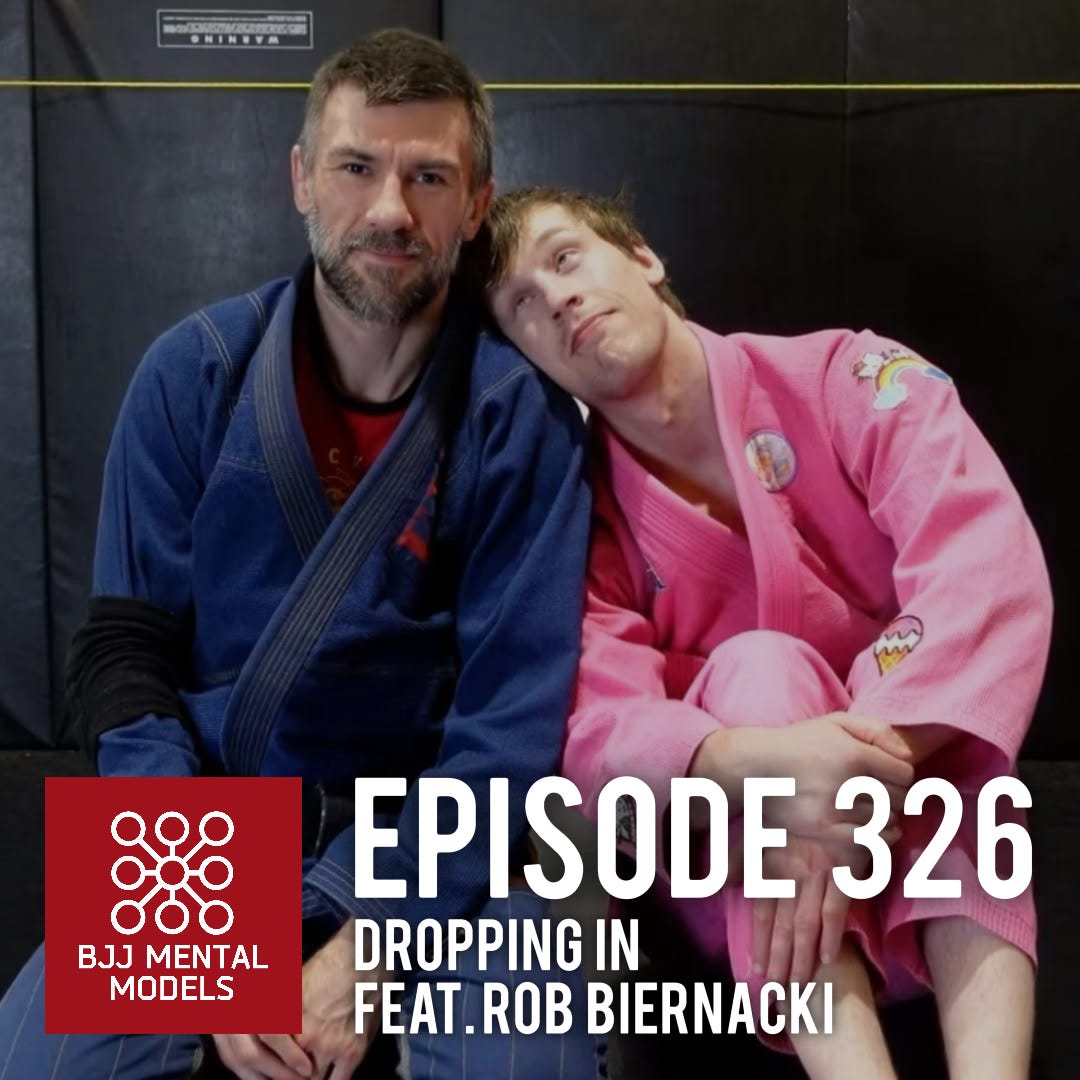Sometimes, I get the feeling that Jiu-Jitsu isn’t so good for me.
A few weeks ago, I got to the end of a crazy stretch in work. Weeks of poor sleep, hard training, traveling for seminars and matches, and constant hard work. I was falling short in pretty much every area of my life except for training.
I was dissociating at times, obsessing over Jiu-Jitsu techniques but hardly learning any, and my writing was suffering. I was doing the bare minimum of putting out a newsletter and keeping tabs on a couple of clients, but I was not thriving and I was not motivated to keep working.
Then, I got sick with a pretty bad infection. It was almost like it came at the perfect time.
I was forced out of the gym for a few days, stuck at home with nothing but my computer and a to-do list, and I went from being overwhelmed to being bored.
From that boredom, I experienced the first true mental clarity and focus that I’ve felt in months.
Let’s talk about burnout, success, and how to work more effectively.
Hard work is essential, but stupid.
My year so far has included:
A competition in England (and daily training for it)
Hitting strength training harder than I have in years
3 seminars
Ghostwriting books
Outlining a new book
Maintaining dozens of business contacts
Writing my newsletters and social content
Creating videos to promote my Jiu-Jitsu courses
And those are just the work things I’m doing. I also have a girlfriend and 2 dogs, and I have to eat, sleep, and do the laundry.
Unfortunately, I find that when life is too crazy with the stress of work, training, and other things, I don’t rest well. Not resting well leads to not eating well. I lose my peace.
Hard work is essential, but eventually, it makes me stupid.
Motivation comes in seasons.
Some days, I wake up and the idea of work makes me physically ill and angry. I don’t want to train, I don’t want to write, and I damn sure do not want to think.
On other days, I am enthralled by the possibilities of creative work and hard training. Some days, I wake up and slam coffee to survive, other days I nurse one espresso for an hour while I make something out of it.
Motivation is relatively unpredictable.
We can do things to improve our motivation, but we cannot rely on motivation alone to help us create our best work.
Instead, you need discipline. You need balance.
One misunderstanding a lot of people (myself included) often have is that discipline is not just the discipline to work, it is also the discipline to allow yourself to recover from the work that you do.
Focus comes when your energy expenditure levels are lined up, and it doesn’t happen all the time.
So, build your life in seasons.
This year, the word that I’m trying to live by is “strength”.
What I’m learning as the year goes on is that strength is not only the ability to lift a lot of weights, work hard, or commit to the same training routine every single day.
Strength is the ability to be flexible. To bend to what life requires of you. To hustle when it’s time to hustle and to rest when it’s time to rest.
Something that can withstand a great deal of pain is strong. Something flexible is strong. It’s not just about what you can lift or do, it’s also about what you can endure.
When you fight what you’re being given — just like when you respond in Jiu-Jitsu with the incorrect technique — you run the risk of catastrophic failure.
Focus is derived from clear goals and ample time to achieve them.
When I first started competing, I used to give myself 4-6 weeks to prepare for events.
I’d dial in my training, ramp up strength and conditioning, and grind as hard as I could for the 6 weeks leading up to the event.
After the event, I’d get back to training as soon as possible, but I’d train more for fun, with less intensity, and I’d even train in other martial arts. This was back when I was interested in MMA, boxing, and kickboxing.
Then, around blue belt, I became “a competitor”, and something happened that dramatically affected my development:
I started competing every few weeks instead of every few months, and because of that, I was always training for competition. There was never any time to reach my goal of getting better at Jiu-Jitsu because my goal was always to win the next competition.
I competed a lot back at the lower belts because I wanted to acquire experience, but I often sacrificed improvement for the price of experience. As you reach a more advanced level, it’s better to focus on quality over quantity.
The most focused I’ve ever been before a Jiu-Jitsu competition was last summer before ADCC. It was the first time probably since blue or purple belt that I really locked in on one competition for several months.
The result was one of the best performances of my career.
Closing Thoughts
In today’s culture, it’s easy for many of us like to feel like we’re supposed to be doing everything we can do to be our best, all the time.
Speed is the theme of the modern world. Faster everything. Easier everything. Optimal everything — all the time. The internet and social media tell us to strive for perfection so that we can be more loved, more accepted, and “better”.
But if the only expectation is your best, you only satisfy yourself on that 1% occasion where you kill it.
The more time I spend in professional Jiu-Jitsu, the more I’m acknowledging the time required for improving.
After ADCC, I didn’t even want to compete for a while because I didn’t think I could have a performance like that again so soon. I peaked, and then I sunk down into a valley.
To improve, you need to allocate time for improvement. You need seasons. The other option, I guess, would be to blast a bunch of steroids and just go hard all the time, but that doesn't work for most of us.
Most of us need time to focus on our development.
And because of the world that we’re in, most of us need to make time to focus on our development because otherwise, you’re going to be stuck on the hamster wheel.
The Grappler’s Diary is sponsored by BJJ Mental Models, the world’s #1 Jiu-Jitsu podcast!
This week we're joined again by Rob Biernacki!
In this episode, Rob shares advice for getting the most out of BJJ gym drop-ins, seminars, and camps.
Topics include the importance of prior communication before attending, safety and etiquette during training, addressing issues with aggressive partners, the mindset needed to ensure a positive experience, and Island Top Team's visiting student program.
To listen, look up BJJ Mental Models wherever you listen to your podcasts or just hit this link.
Want to write for The Grappler’s Diary?
Do you have a Jiu-Jitsu story that you want to share?
I’m officially taking submissions for guest articles to The Grappler’s Diary.
Our newsletter reaches tens of thousands of readers on Substack every month and hundreds of thousands of readers on Instagram.
If you’d like to have your story featured in our newsletter and blasted across all social platforms, please send a no more than 250-word pitch to info@chrismwojcik.art. Our content calendar for March has already been filled.
Currently, I’m looking for contributions that will be run in April and May.
All pitches will be read and reviewed. Contribution pieces must be no more than 2000 words.
Also published this week:
Thank you for reading another edition of The Grappler’s Diary!
If you enjoyed reading this article, share it with friends! Or, click on the ❤️ button on this post so more people can discover it on Substack!







I like to say the difference between resilience and burnout is recovery.
Good evidence that physical burnout doesn’t come from overtraining but from under recovery.
Good on you for this awareness. Only going to help you out more.
Could you potentially share where you think your writing suffered during that time though? Not noticed on my end haha